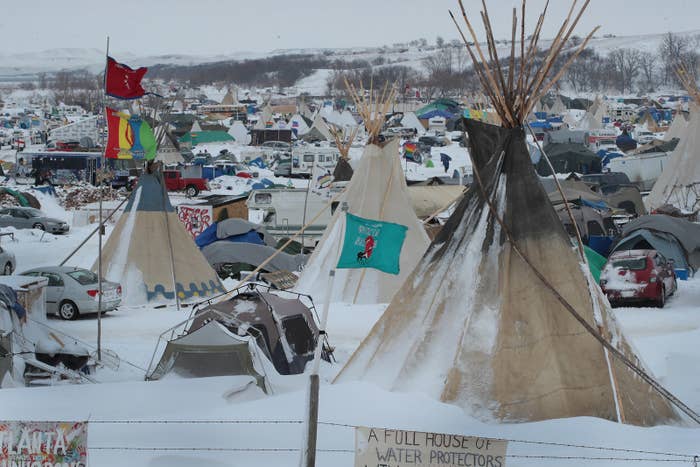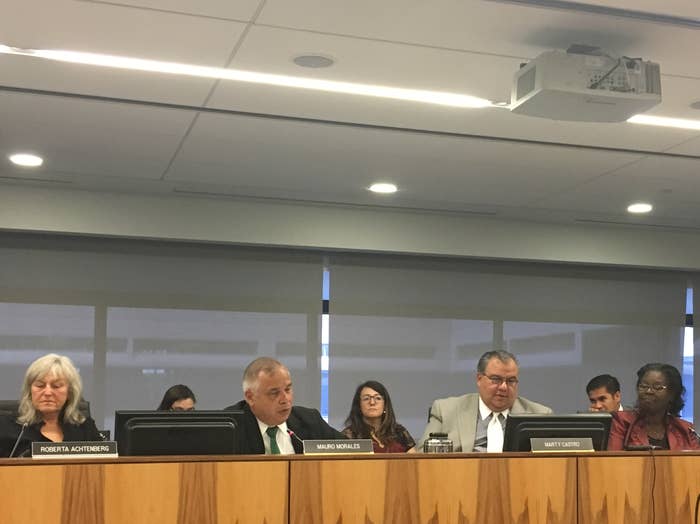
WASHINGTON — The US Commission on Civil Rights will send a delegation to visit the campsite in North Dakota, where hundreds of people have gathered to protest the building of the Dakota Access Pipeline.
The goal is to meet with tribal leaders, water protectors, as well as state and government authorities. The commission is the independent, bipartisan federal civil rights watchdog group, established by the 1957 Civil Rights Act.
"That has become the seminal issue of the day when it comes to Native American rights," commission chair Martin Castro, who will travel to Standing Rock, told BuzzFeed News.
"This is to me the closest thing to what we've done since the time that we would go down in the 1960s to the Jim Crow South, to examine what's going on on the ground, on an open active issue, where there is engagement between the community and the government."
Commissioners voted in a Friday meeting to make the trip, after David Archambault II, chairman of the Standing Rock Sioux tribe, sent a letter inviting the commission to visit. The observers intend to travel there early next week.
The commission is currently researching an update to its 2003 report, "Unmet Needs," that examines Native American life as well as the government's stewardship of the communities and their lands.
"We cannot as a commission be looking at civil rights for Native Americans and unmet needs in Indian Country in the 21st century without now looking at what’s going on in Standing Rock," Castro said.

"Ideally we’d want to observe and meet with all parties involved, from the Army Corps of engineers to the protestor who just got hit with the water cannon," Castro said.
"Hopefully we will not only write a report about what we've seen, but also co-ordinate with players involved to see how matters may be improved."
The visit follows two weeks of mounting tensions at Standing Rock.
On November 21, police drenched protestors with water cannons in frigid temperatures, leading to the hospitalization of at least 17 people.
The Army Corps of Engineers last Friday said that it intends to close lands that include the campsite by Dec. 5. On Monday, the North Dakota governor Jack Dalrymple issued an emergency evacuation order that called on protestors to vacate campsite, citing incoming cold weather. State officials have threatened to fine people traveling to the site.
US Senator Corey Booker this week called for a Department of Justice investigation into the police actions in Standing Rock. In the past, police have used tear gas, rubber bullets, and police dogs against people who have gathered at the site.
At least 2,000 veterans plan to travel to the site this weekend, in solidarity with the movement.
